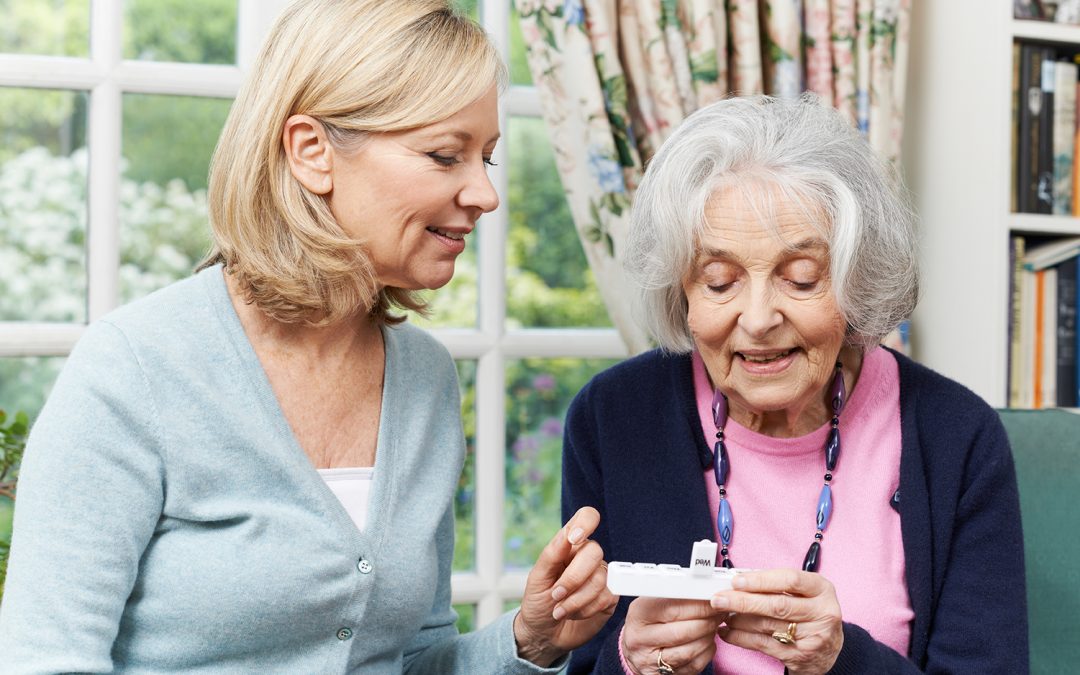Are you (or do you know) someone who should be concerned about Seniors Medication Safety? Visit here to take a quiz.
Seniors receiving home care should be able to take their medications independently in a safe manner. This is an important aspect of senior care, which is usually neglected, and it can have serious consequences, especially when a senior is living alone.
Below, you’ll find a true or false quiz which provides education about various aspects of medical safety, and can help prepare a senior for taking medications on his or her own.
10 Questions about Senior Medication Safety
1] Since medicines are beneficial, I can take an increased dose.
False. Taking the exact dosage of each medicine prescribed by the doctor is very important. If you have a problem remembering the dosage of your various medications, it is advisable to make a chart, and stick it on your medicine cabinet, or table.
2] It is quite all right if a dosage is forgotten.
False. If you forget to take your medications, it can have serious consequences. To remember your dosage, set an alert on a device like a timer, and use a container with various compartments divided according to the dosage. If the particular compartment is not empty, it will alert you to the fact that you have not taken your medication.
3] While purchasing medications, I should compare the labels with the prescription.
True. The pharmacy can make an error, and hence it is always good to compare the medication you receive with what has been prescribed by your doctor. If there is any discrepancy, bring it to the notice of the pharmacist. If the pharmacist has given an alternate medication, check it out with your doctor.
4] Medications can be stopped, once I start feeling better.
False. You need to contact your health provider before stopping any medication. In particular, antibiotics have a prescribed duration of treatment, and can cause harm if the treatment is stopped in between. Certain medications prescribed over a long-term help in maintaining a healthy condition, and hence should not be discontinued without consultation.
5] I can store all medications in one place.
False. Store only your current medications in one place. Discard all old receptacles, and store medications of old prescriptions separately. If you are living with other seniors, make sure each one uses different cabinets for storing their medications.
6] All herbal preparations are safe, because they are natural.
False. Herbal remedies may have ingredients that can interfere with the efficacy of your prescribed medication, or even cause a harmful reaction.
7] OTC (Over the Counter) medications are safe, if purchased from a reputed pharmacist.
False. If you plan to take any OTC medications, always check with your doctor first. Never take any medications without consulting your doctor, as there are many possibilities that can lead to a dangerous situation.
8] Review medications during each visit with your doctor.
True. It is always helpful to get your medication checked by your doctor, even when the prescription is not changed.
9] Consult your doctor before making changes in your diet.
True. Certain foods can react dangerously with your present medication, or cause severe allergic reactions; hence, it is advisable to check with your doctor before you add new foods to your diet.
10] I should take extra precautions while taking medications at night.
True. Make sure you put on adequate lights so you recognize the medicines, and read the labels. If the medications are to be taken just before bedtime, lay out the dosage on the table much before, when you are not feeling sleepy or disoriented.




